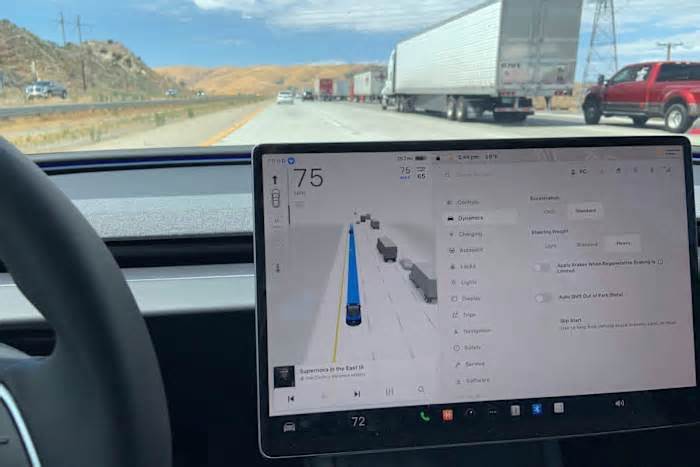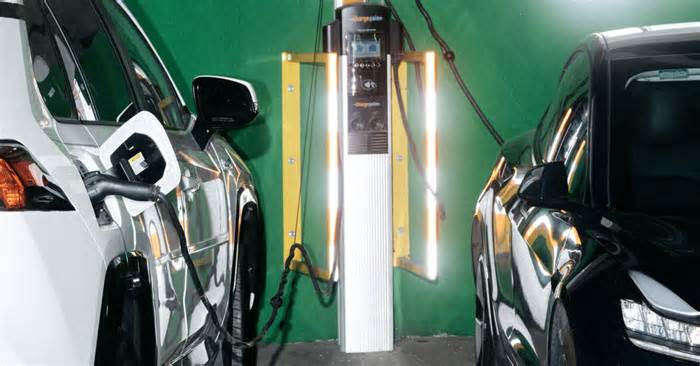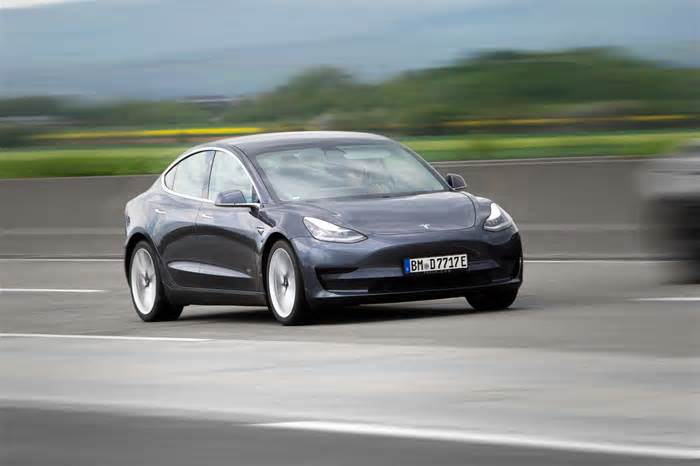
Cdn. government’s $2B loan for satellites causes problems in parliament
- by Canadian Manufacturing
- Sep 23, 2024
- 0 Comments
- 0 Likes Flag 0 Of 5

Manufacturing Exporting & Importing Operations Regulation Risk & Compliance Supply Chain Technology / IIoT Infrastructure advanced manufacturing In Focus internet Manufacturing regulations supply chain Technology telecommunications trade
The fight involves internet connectivity in remote regions as Canada tries to live up to its promise to connect every Canadian household to high-speed internet by 2030.
A $2.14-billion federal loan for an Ottawa-based satellite operator has Canadian politicians arguing about whether American billionaire Elon Musk poses a national security risk.
The fight involves internet connectivity in remote regions as Canada tries to live up to its promise to connect every Canadian household to high-speed internet by 2030.
Telesat CEO Dan Goldberg said “there appear to be some misunderstandings” about the nature of his company’s deal with the government.
A week ago, the Liberal government announced the loan to Telesat, which is launching a constellation of low Earth orbit satellites that will be able to connect the most remote areas of the country to broadband internet.
Advertisement
Conservative MP Michael Barrett objected to the price tag, asking Musk in a social media post how much it would cost to provide his Starlink to every Canadian household that does not have high-speed access.
“Less than half that amount,” Musk responded, prompting Barrett to conclude: “That sounds like a common-sense solution for Canada to me.”
In an interview, Goldberg rejected the comparison because his company received a loan, not a grant.
Telesat will pay the government nine per cent interest. The Quebec government is also loaning $400 million. In exchange, Telesat will give up around a 12 per cent equity stake in the company to the two governments.
Advertisement
“No one asked Elon, ‘Do you want a $2-billion loan from the government of Canada at a nine per cent interest rate and give up 10 per cent of Starlink?'” he said. “I think there would have been a very different response.”
He noted that a portion of the loan will actually end up going to Musk’s SpaceX because Telesat uses the company to launch satellites.
A spokesperson for Innovation Canada said the new loan replaces a previous $1.44-billion loan announced in 2021, which did not go ahead. The government is maintaining its commitment to spend $600 million to buy internet capacity once the system is operational.
The Liberal government has a years-long initiative to ensure all Canadian households are connected to high-speed internet, with the goal of getting to 98 per cent in 2026 and 100 per cent by 2030.
Advertisement
The last communities are the most challenging because they rely on satellite service. Traditional satellite internet, which uses a geostationary satellite higher up in orbit, has limitations.
Newer-generation low Earth orbit satellite systems, like the one being launched by Telesat and those used by Musk’s Starlink, use many satellites that circulate closer to Earth and can offer high-speed internet without the same issues.
Telesat’s launch plans have already been delayed by years. Goldberg said those delays, some of which were related to challenges around COVID-19, are “in the rear view” and the company plans to be fully in service with global coverage by the end of 2027.
Starlink’s coverage map shows service as available in Canada, though its parent company didn’t answer questions about service availability in the country’s most remote areas.
After Barrett’s exchange with Musk, Innovation Minister François-Philippe Champagne accused the Conservatives of wanting to “sell out our national security.”
“When you are in the farther north, you need a reliable network, and you need sovereignty and resiliency in the network. So to suggest otherwise to me is a bit crazy.”
He said Telesat would design and manufacture the system in Canada.
“That’s the kind of sovereignty and resiliency that we want to see, especially when you’re talking about critical military infrastructure that we need also for the defence of the North.”
In a statement, the Conservatives stuck to their argument that Musk would be a better bet. Industry critic Rick Perkins said “there’s an established, available platform that can provide high-speed internet today, and it wouldn’t require billions of taxpayer dollars going into the pockets of Liberal-connected insiders.”
The Conservatives also tried to connect the contract to former Bank of Canada governor Mark Carney, who was appointed as an economic adviser to the Liberals on Sept. 9, four days before the Telesat loan was announced.
Deputy Conservative leader Melissa Lantsman said in the House this week that Carney’s “close friend, the CEO of Telesat, got more than two billion of Canadians’ tax dollars to build a broadband network that other firms could have built for half that price.”
Goldberg confirmed Carney is a friend but said “he had absolutely nothing” to do with the loans.
In announcing the loan, the Prime Minister’s Office said Telesat would provide capacity to the defence industry and support NATO and Norad modernization.
Goldberg said the agreement doesn’t include specifics about using the system for defence. He said Telesat’s constellation can be a “key enabler” for Norad modernization.
MDA Space: Ready For Liftoff
Sep 23, 2024
Please first to comment
Related Post
Stay Connected
Tweets by elonmuskTo get the latest tweets please make sure you are logged in on X on this browser.
Sponsored
Popular Post
Tesla: Buy This Dip, Energy Growth And Margin Recovery Are Vastly Underappreciated
28 ViewsJul 29 ,2024






 Energy
Energy



















